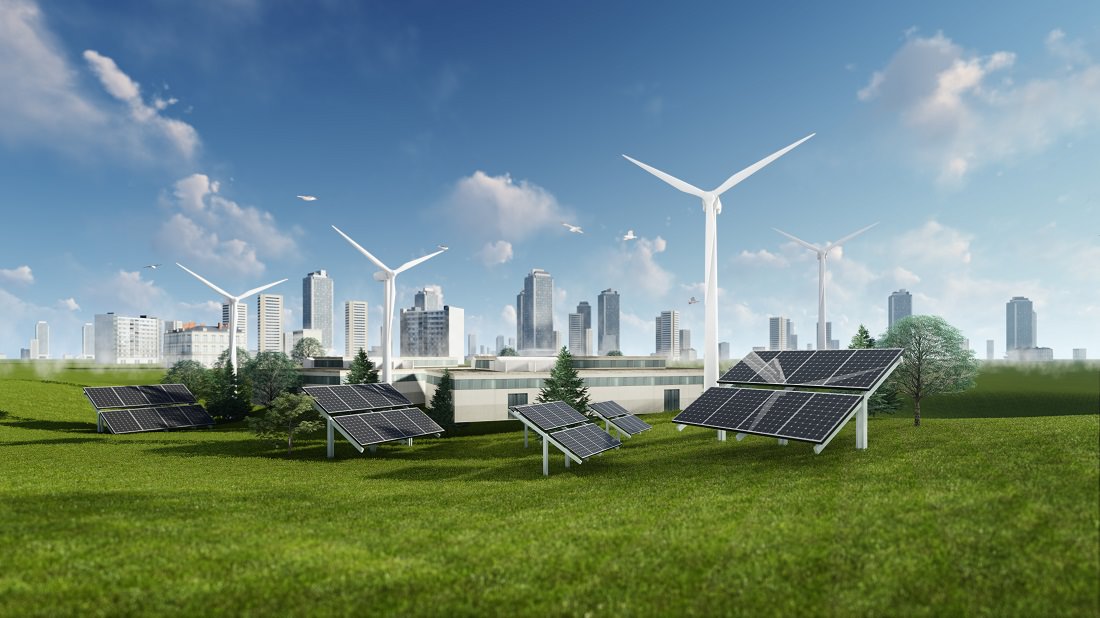Renewable Energy
Renewable Energy and Future
2nd August 2021

Renewable energy and their environmental impact are at the forefront of many political and social conversations around the world. Renewable energy is a clean, inexhaustible, and highly competitive source of energy. They are distinguished from fossil fuels mainly by their versatility, their abundance, and their potential for use anywhere on the planet, but above all they do not produce greenhouse gases or polluting emissions that cause climate change.
Their costs are also falling and at a sustainable rate, while the trend in overall fossil fuel costs is in the opposite direction despite the current volatility. The growth of clean energy is unstoppable, as annual statistics from the International Energy Agency (IEA) show. They represent almost half of all new generation capacity installed making it the second largest source of electricity in the world According to the IEA, global electricity demand will increase by 70% by 2040, and the share of final energy consumption will increase from 18% to 24 % over the same period. It is mainly driven by the emerging economies of India, China, Africa and the Middle East and South East Asia.
Of course, it’s that easy and complicated. The obvious reason is that the low-end sources are ready to go. Many experts estimate that we could run out of fossil fuels in the next 100 years and burn other materials for energy. Another reason why it is so important to use renewable energy sources is that when all non-renewable energy sources are converted to energy, it destroys the earth, pollutes the atmosphere, plants, animals, making human life difficult. The air pollutants and smog in our cities cause allergies, asthma symptoms, and even lung disease. Climate change, acid rain and physical damage to the environment are also major negative impacts caused by continued dependence on fossil fuels.
Advantages of renewable energy
Renewable energy is the cleanest and most viable solution to prevent environmental degradation because it does not emit greenhouse gases during energy production.
Compared to conventional energy sources with limited reserves such as coal, gas, oil and nuclear— clean energy is available just like the sun and adapts to the natural cycle, hence renewable. This will be an integral part of a sustainable energy system that enables today’s development without endangering future generations.
Naturally lean energy sources empower the local economies and brings benefits asserting their meaning of the term “energy independent”. Reliance on imported fossil fuels can lead to dependence on the short-term economic and political goals of the supplier and can jeopardize the security of the energy supply. Around the world, there are renewable resources (wind, sun, water, organic matter, etc.) that can be used to produce energy in a sustainable way.
Renewable energies, especially wind and solar, are cheaper than traditional energies in most of today’s world.
Major renewable technologies such as wind and solar have significantly reduced costs and are becoming the most efficient way to generate electricity in more and more markets. Economies of scale and innovation have made renewable energy the most sustainable solution for moving the world at incredible speeds, both from an environmental and an economic point of view.
Favourable political horizon
The international community understands its obligation to support the transition to a low-carbon economy to ensure a sustainable future for the planet. The international consensus in support of the “decarbonisation” of the economy provides a very favourable framework for promoting clean energy technology.
RECOMMENDED

Jali, a traditional architectural element renowned for its beauty and functionality, has evolved...

Green audits are essential tools that provide a comprehensive assessment of an organization's environmental...

Daylighting is a strategic element in sustainable architecture, essential for reducing energy consumption and enhancing...